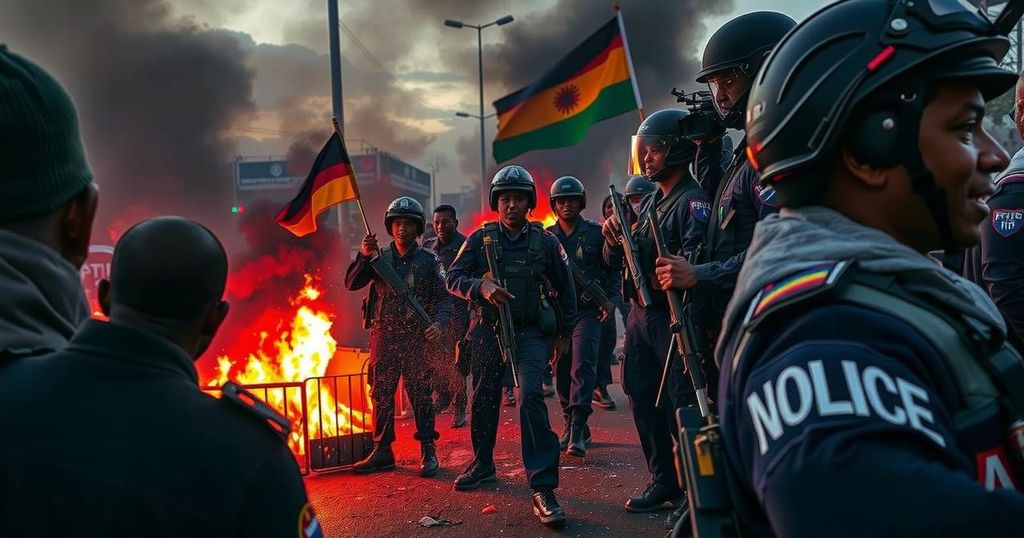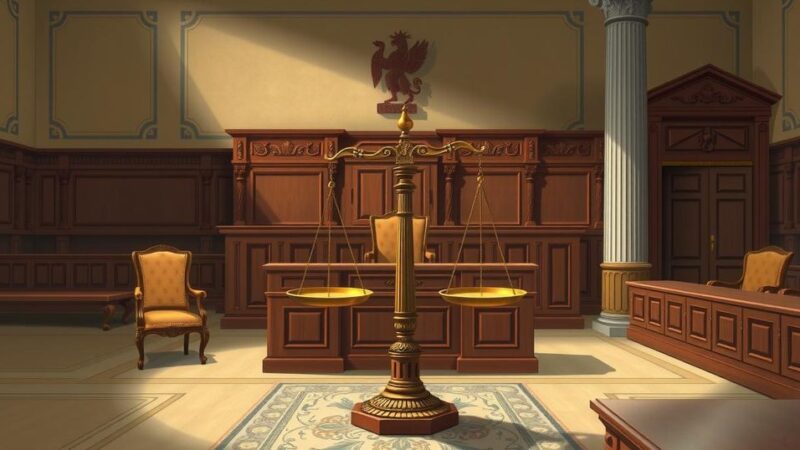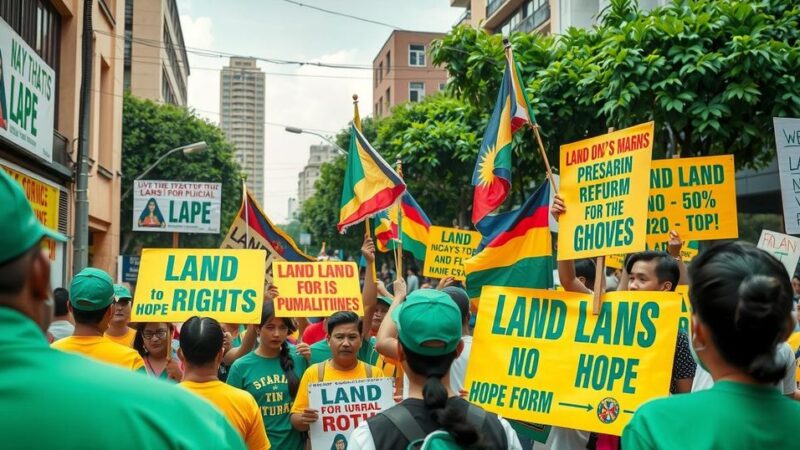Mozambique has witnessed significant protests following the October 9 presidential election that resulted in the ruling Frelimo party retaining power. Allegations of election fraud and police violence have sparked widespread unrest and confrontations. The protests have resulted in at least 20 reported deaths, with calls for political reform growing louder among disgruntled citizens, particularly the country’s youth.
In Mozambique, ongoing protests have erupted following the controversial results of the presidential election held on October 9, 2024, in which the ruling Front for the Liberation of Mozambique (Frelimo) party extended its long-standing hold on power. Despite widespread allegations of election fraud, including ballot manipulation and voter list discrepancies, the electoral commission declared Daniel Chapo the winner. This declaration has sparked serious unrest, leading to violent confrontations between protesters and police forces. Human rights organizations report that the crackdown has resulted in numerous fatalities, with counts varying between 20 to over 50 casualties. Reports indicate that protesters have resorted to setting fires across the capital, Maputo, and other cities, prompting police to respond with tear gas and rubber bullets. The situation escalated after the assassination of two senior opposition figures, which heightened tensions and prompted calls for protests from independent candidate Venancio Mondlane, who condemned the election as fraudulent. Amidst the chaos, authorities have threatened to deploy the military and have restricted internet access to curb communication among demonstrators. The unrest has even led neighboring South Africa to temporarily close its border with Mozambique due to safety concerns. These protests have historical roots, as Mozambique has faced years of political instability and violence since the end of its civil war in 1992. The ongoing unrest can be partially attributed to widespread dissatisfaction with Frelimo’s governance, coupled with a youth demographic increasingly disenchanted by systemic corruption and economic hardships. As the crisis unfolds, there is a palpable sense of fear within opposition ranks, notably with Mondlane reportedly fleeing into exile amidst threats against his life. The state of democracy in Mozambique remains at a precarious juncture, as authorities grapple with calls for reform and a populace demanding accountability from their leaders.
The current political climate in Mozambique is fraught with tensions stemming from the 49-year rule of the Frelimo party since the country’s independence from colonial rule in 1975. The electoral process has long been marred by allegations of fraud and manipulation. In the recent election, Frelimo’s retention of power has ignited widespread protests reflecting dissatisfaction with the political system. Recent violence, including targeted assassinations of opposition members, has only exacerbated the situation, highlighting deep divisions within Mozambique’s society and political landscape. The unrest is also symptomatic of the broader struggles faced by the region, including a history of civil conflict and ongoing insurgent threats in northern provinces.
The situation in Mozambique following the recent presidential election serves as a stark reminder of the fragility of democratic processes in the country. With allegations of electoral fraud and growing discontent among the populace, the response from law enforcement has led to significant loss of life and further unrest. The actions of Frelimo’s leadership will be critical in determining how the nation addresses these challenges moving forward, particularly in rebuilding trust and ensuring the safety of all citizens.
Original Source: apnews.com






